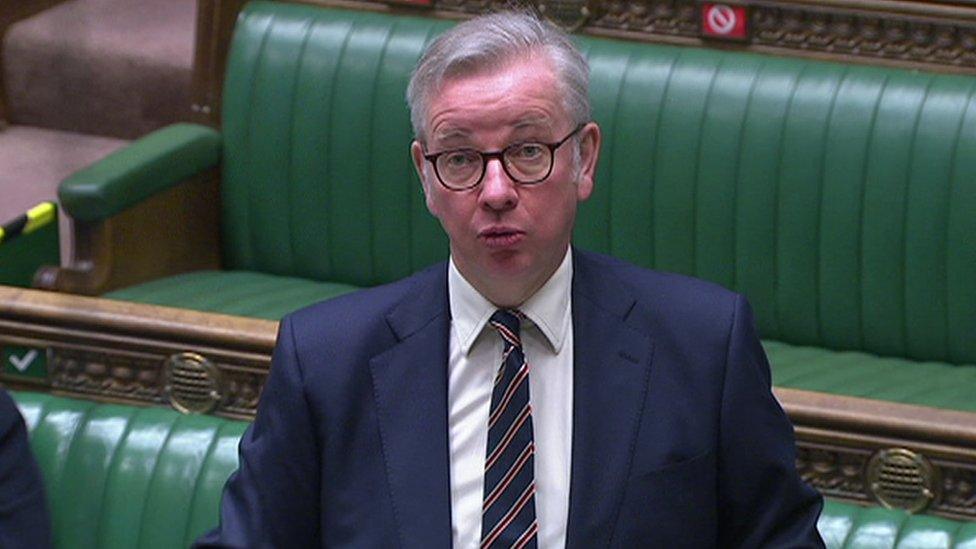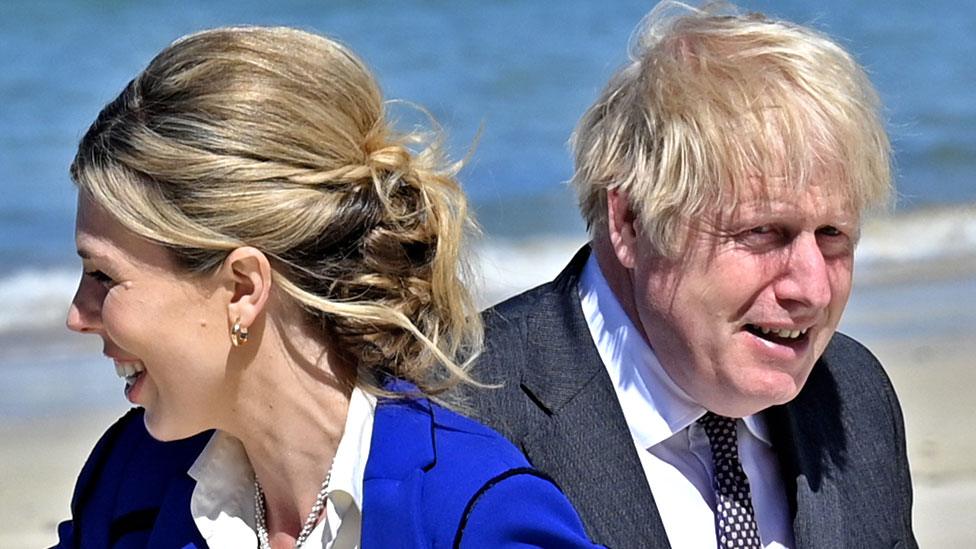Plans to scrap English votes for English laws
- Published

A system which gives English MPs an effective veto on laws which only affect England should be scrapped, the government says.
Michael Gove said the English votes for English laws, external (EVEL) procedure had "not served our Parliament well".
EVEL was introduced in 2015 to correct a perceived imbalance in the powers of English and Scottish MPs.
MPs will vote next week on removing a requirement for a majority of English MPs to approve relevant laws.
Speaking at Cabinet Office questions on Thursday, Mr Gove said his office, alongside that of Leader of the House Jacob Rees-Mogg, had been reviewing the process.
West Lothian Question
"The procedure has been suspended since April 2020 and having reflected, the government believes it has not served our Parliament well and that removing it would simplify the legislative process," he said.
"It's a fundamental principle that all constituent parts of the United Kingdom should be equally represented in Parliament," he added.
EVEL was established to address the so-called West Lothian Question, in which English MPs could not vote on matters devolved to other parts of the UK, but Scottish, Welsh and Northern Irish MPs could vote in Westminster on England-only matters.


This procedure was David Cameron's answer to the perceived imbalances of devolution.
When laws only applied to England, shouldn't MPs representing England have more of a say?
But it's been highly controversial. The SNP argued it created a second class of MPs who couldn't take part in all votes. There was sometimes heated debate on whether certain laws had knock on effects for Scotland, Wales and/or Northern Ireland.
Michael Gove is one of the ministers trying to shore up support for the union after the SNP's election victory in May's Holyrood elections. His comments will be welcomed by some Scottish unionists who think David Cameron's focus on EVEL was a mistake.
But questions persist over how to find the right balance of power in policy areas where the Commons makes decisions for England but the devolved legislatures make their own decisions.

"Quasi-English parliament"
Under the procedure, English, or English and Welsh, MPs could accept or veto legislation affecting their constituents before it passed to third reading, its final Commons stage, where it would be voted on by the whole House.
EVEL has been opposed both by Labour and the SNP. When it was introduced, Labour argued the Conservative government, which was dominant in England, was using the procedure to "manufacture" a larger majority.
Speaking on Thursday, the SNP's Pete Wishart said the process created a "quasi-English parliament squat" in the UK Parliament.
Mr Rees-Mogg said: "I am delighted to suggest it's a victory for the SNP, but it's also a victory for people of my way of thinking about our constitution, and this is important because, within this House, we are the Parliament of the whole of the United Kingdom."
Related topics
- Published8 July 2021

- Published8 July 2021

- Published8 July 2021
